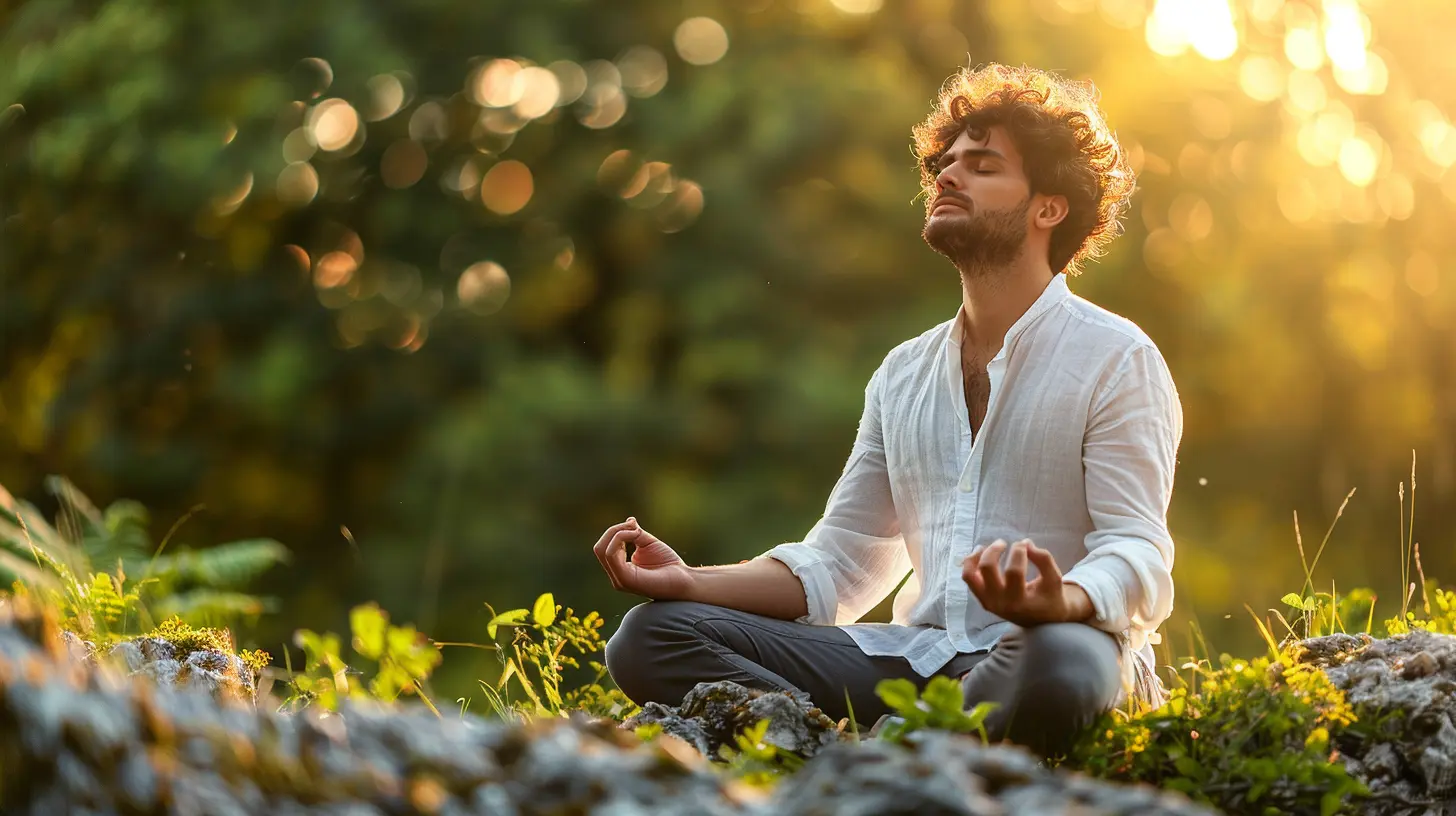The Psychological Benefits of Nature and Outdoor Activities
12 July 2025
Have you ever noticed how a simple walk in the park can lift your mood? Or how spending a day hiking in the mountains leaves you feeling refreshed and recharged? It’s not just in your head—nature has a profound impact on our mental well-being.
In our fast-paced, technology-driven world, many of us have lost touch with the natural environment. We’re glued to our screens, living in a constant state of digital overload. But stepping outside, breathing in fresh air, and connecting with nature can work wonders for our psychological health.
Let’s dive into the incredible psychological benefits of nature and outdoor activities, backed by science and lived experience.

1. Nature Reduces Stress and Anxiety
Life can be overwhelming, and stress is something we all deal with. But nature has a magical way of calming our frazzled nerves. Studies show that spending time in green spaces lowers cortisol levels—the hormone responsible for stress.Ever wondered why a walk in the woods feels so soothing? It’s because nature engages our senses in a way that promotes relaxation. The rustling leaves, the chirping birds, the fresh scent of pine—they all work together to slow down our racing thoughts and bring us back to the present moment.
Outdoor activities like hiking, jogging, or simply sitting by a lake create a meditative effect, giving our minds a much-needed break from daily worries. It’s like hitting the reset button on your mental state.

2. Boosts Mood and Fights Depression
Sunshine and open spaces aren’t just good for Instagram photos—they’re essential for mental health. Exposure to natural light boosts serotonin levels, the brain chemical responsible for happiness and well-being.Ever heard of Seasonal Affective Disorder (SAD)? It’s a type of depression that hits during the colder months when there's less sunlight. One of the best remedies? Spending time outdoors, even on cloudy days.
Studies show that people who engage in outdoor activities experience lower levels of depression and feel more optimistic. Whether it’s a short walk in the park or a weekend camping trip, immersing yourself in nature helps cultivate a positive mindset.

3. Enhances Focus and Creativity
Feeling stuck in a mental rut? Struggling with brain fog? Nature might be the cure. Research suggests that time spent outdoors improves cognitive function, enhances creativity, and sharpens focus.Our brains are constantly bombarded with information—emails, social media notifications, endless to-do lists. This mental overload leads to fatigue and decreased attention span. But stepping into nature allows our minds to reset, improving concentration and problem-solving skills.
Ever noticed how some of the best ideas come to you while taking a walk? That’s because nature stimulates creative thinking. Artists, writers, and inventors throughout history have credited outdoor strolls for their best inspirations. So the next time you're feeling mentally drained, ditch the screen and head outside.

4. Strengthens Emotional Resilience
Life is full of challenges, and developing emotional resilience is key to coping with setbacks. Nature teaches us patience, adaptability, and the ability to navigate uncertainty.Think about hiking a steep trail or climbing a mountain. It requires effort, persistence, and the willingness to push through discomfort. These outdoor experiences mirror real-life struggles, helping us build resilience and mental toughness.
Spending time outside also encourages mindfulness—the ability to be present in the moment without judgment. This, in turn, helps us manage stress better and approach life’s obstacles with a clearer, calmer mindset.
5. Improves Sleep Quality
Tossing and turning at night? Nature might help with that too! Exposure to natural light regulates our circadian rhythm, the internal clock that controls sleep patterns.Modern life keeps us surrounded by artificial light—phones, laptops, TVs—all of which disrupt our sleep cycle. Spending time outdoors, especially in the morning or afternoon, helps reset this cycle, leading to deeper, more restful sleep.
Activities like camping, walking, or even gardening can naturally regulate melatonin production, the hormone responsible for sleep. So if you're struggling with insomnia or poor sleep quality, a little fresh air and sunshine might be exactly what you need.
6. Encourages Social Connection
Humans are social creatures by nature, and outdoor activities provide the perfect setting for meaningful connections. Whether it's a family picnic, a group hike, or playing sports in the park, being outdoors fosters stronger relationships.Spending time in nature with loved ones strengthens bonds and creates lasting memories. Plus, engaging in shared outdoor experiences promotes teamwork, trust, and a sense of belonging—key components of emotional well-being.
Even solo outdoor activities can lead to unexpected social interactions. Ever smiled at a fellow hiker on the trail or struck up a conversation with a fellow nature enthusiast? These small moments of connection can significantly boost our sense of happiness and community.
7. Reduces Symptoms of ADHD and Mental Fatigue
Nature is like a natural remedy for mental exhaustion. For those struggling with attention disorders like ADHD, spending time outdoors can improve focus and impulse control.Studies show that children with ADHD who spend time in natural settings display fewer symptoms compared to those who stay indoors. Green spaces act as a cognitive reset, helping both kids and adults concentrate better.
If you're feeling mentally drained from work or school, taking a short nature break can do wonders. Even a 10-minute stroll through a park can replenish mental energy and enhance productivity.
8. Cultivates a Sense of Gratitude and Mindfulness
Nature has a unique way of making us feel small in the best possible way. When you stand on a mountaintop, gaze at a starry sky, or listen to the rhythmic waves of the ocean, you can't help but feel a sense of awe.This connection with something greater than ourselves fosters gratitude and mindfulness. It reminds us to slow down, appreciate the simple joys, and find beauty in the world around us.
Practicing mindfulness in nature—whether through deep breathing, meditation, or simply paying attention to the sights and sounds—reduces anxiety and increases overall well-being.
9. Promotes Physical Activity, Which Boosts Mental Health
Physical activity is a well-known mood booster, and nature makes moving your body even more enjoyable. Whether it’s hiking, cycling, swimming, or just walking, outdoor exercise releases endorphins—the brain’s natural feel-good chemicals.Unlike the gym, where workouts can sometimes feel like a chore, nature-based exercises feel more engaging and rewarding. You’re not just running on a treadmill—you’re exploring trails, climbing rocks, or soaking in breathtaking views. It makes staying active feel less like work and more like an adventure.
Regular physical activity in nature has been linked to lower rates of depression, anxiety, and even dementia. So, next time you're feeling low, swap the couch for a scenic trail and let nature do its magic.
Conclusion
Nature is a powerful healer. Whether you're battling stress, struggling with focus, or just feeling a little off, spending time in the great outdoors can work wonders for your mind and soul.From reducing anxiety and boosting mood to enhancing creativity and improving sleep, the psychological benefits of nature are undeniable. So, step outside, take a deep breath, and allow nature to restore, refresh, and revitalize your mind.
Your mental health will thank you for it!
all images in this post were generated using AI tools
Category:
PsychologyAuthor:

Gloria McVicar
Discussion
rate this article
1 comments
Lindsey Pope
What a wonderful exploration of nature’s impact on our mental well-being! Embracing outdoor activities can truly rejuvenate our minds and spirits. Thank you for sharing these insightful benefits! 🌿✨
August 12, 2025 at 3:00 AM

Gloria McVicar
Thank you for your kind words! I’m glad you found the exploration of nature's benefits enlightening. Embracing the outdoors truly does wonders for our mental health! 🌱✨


